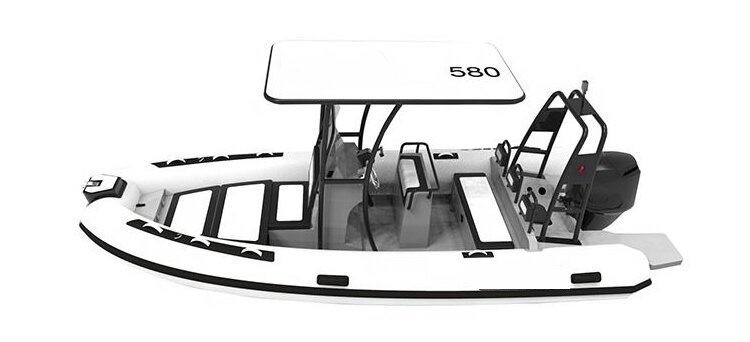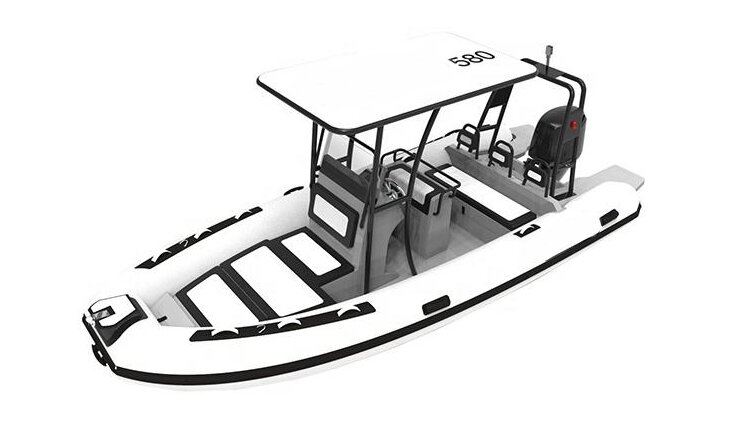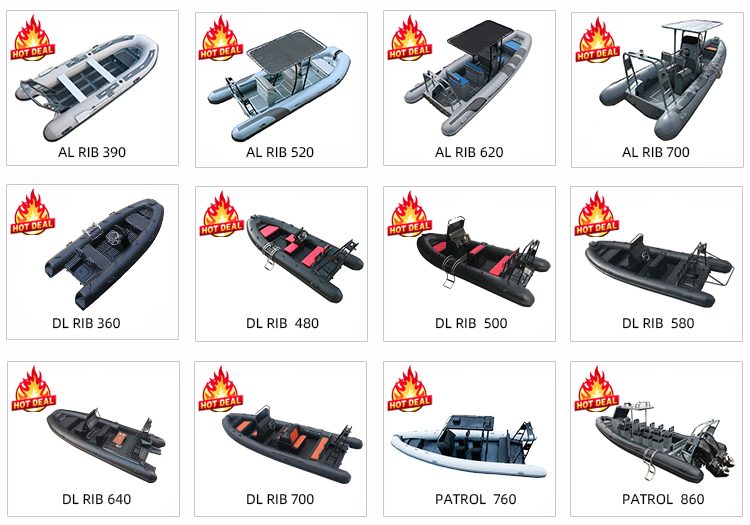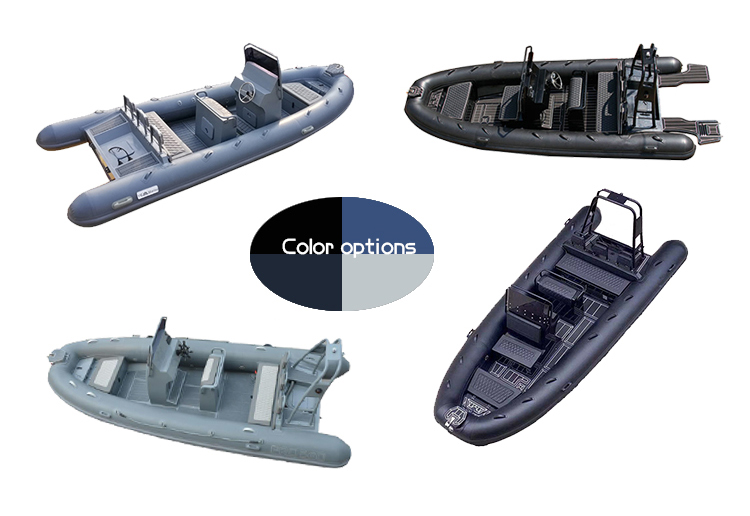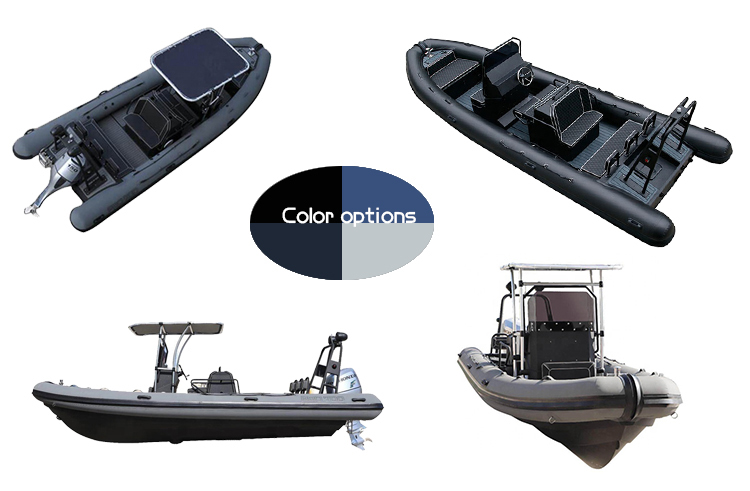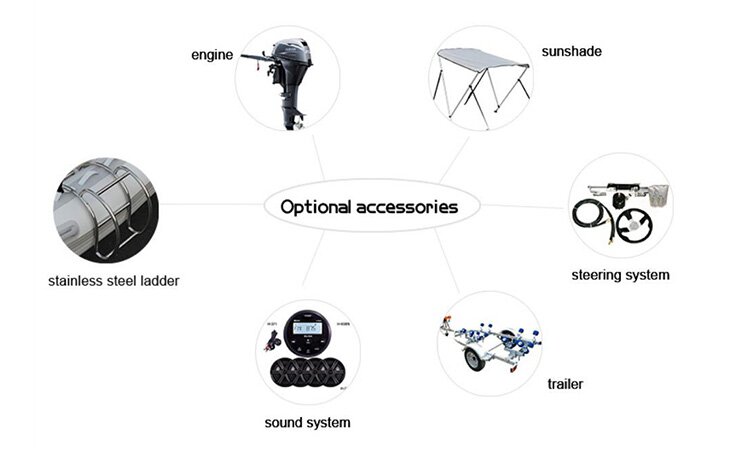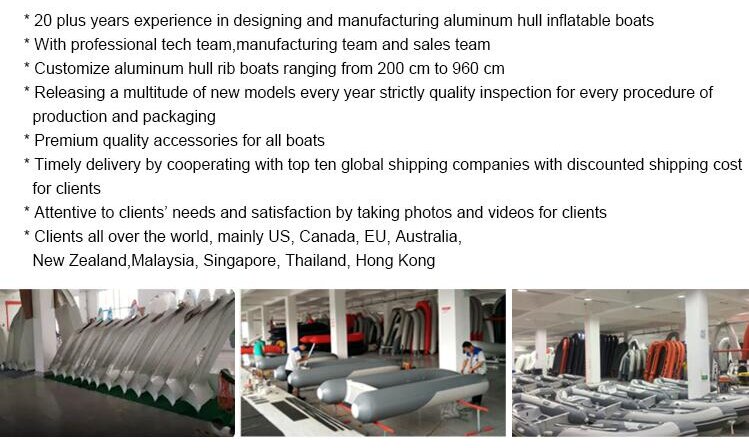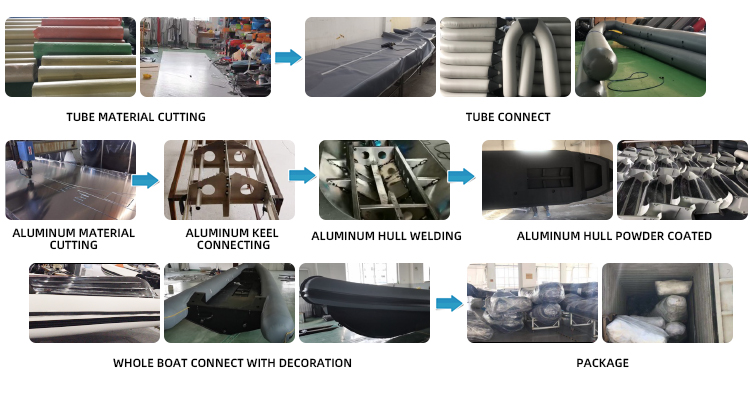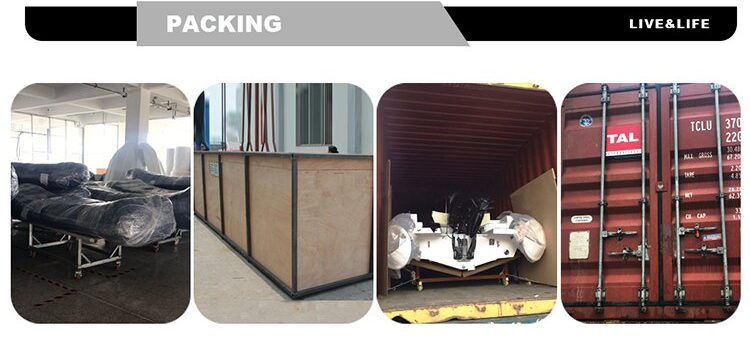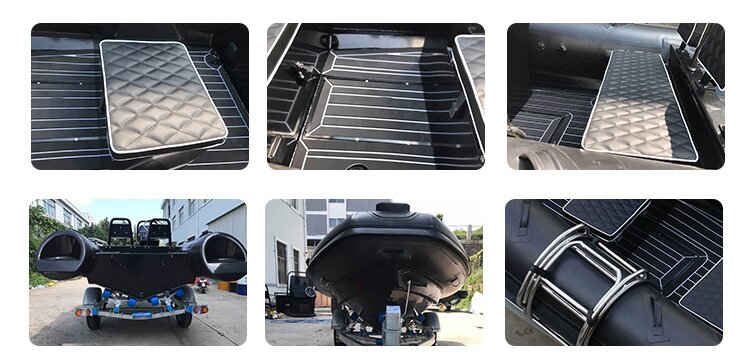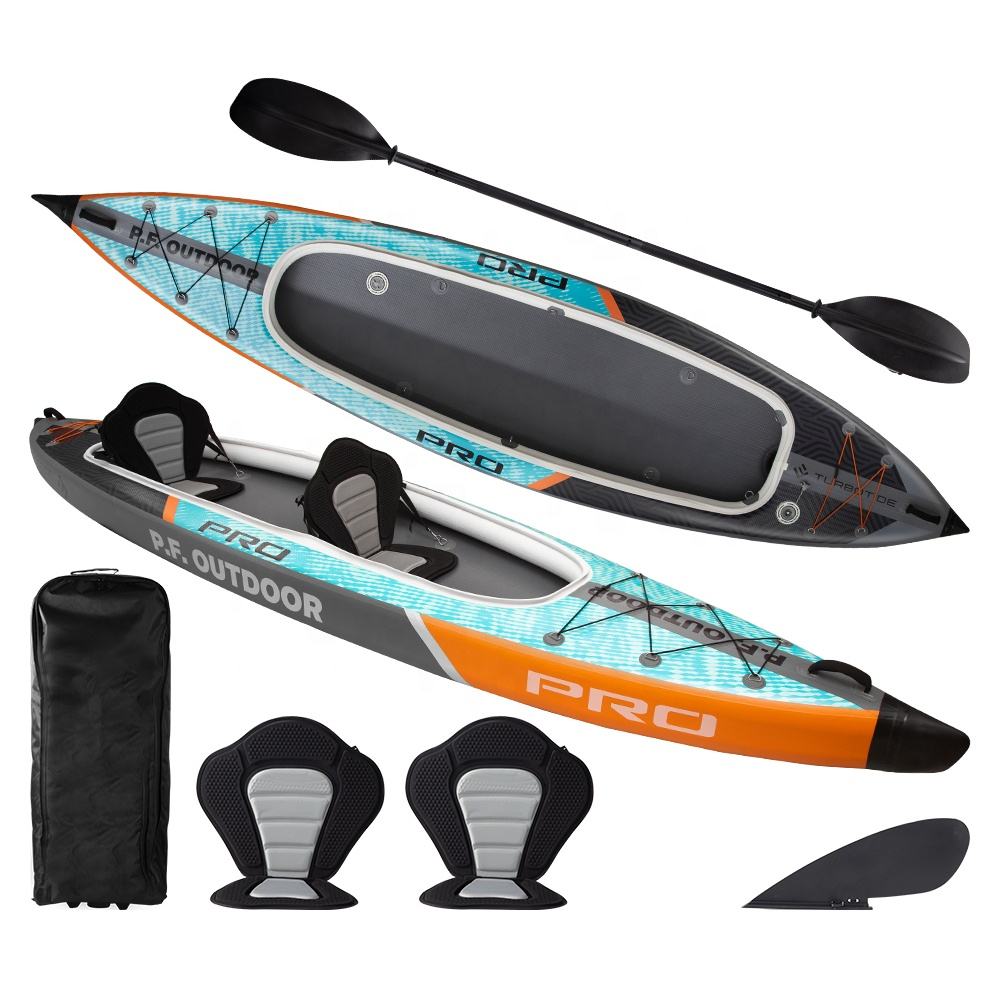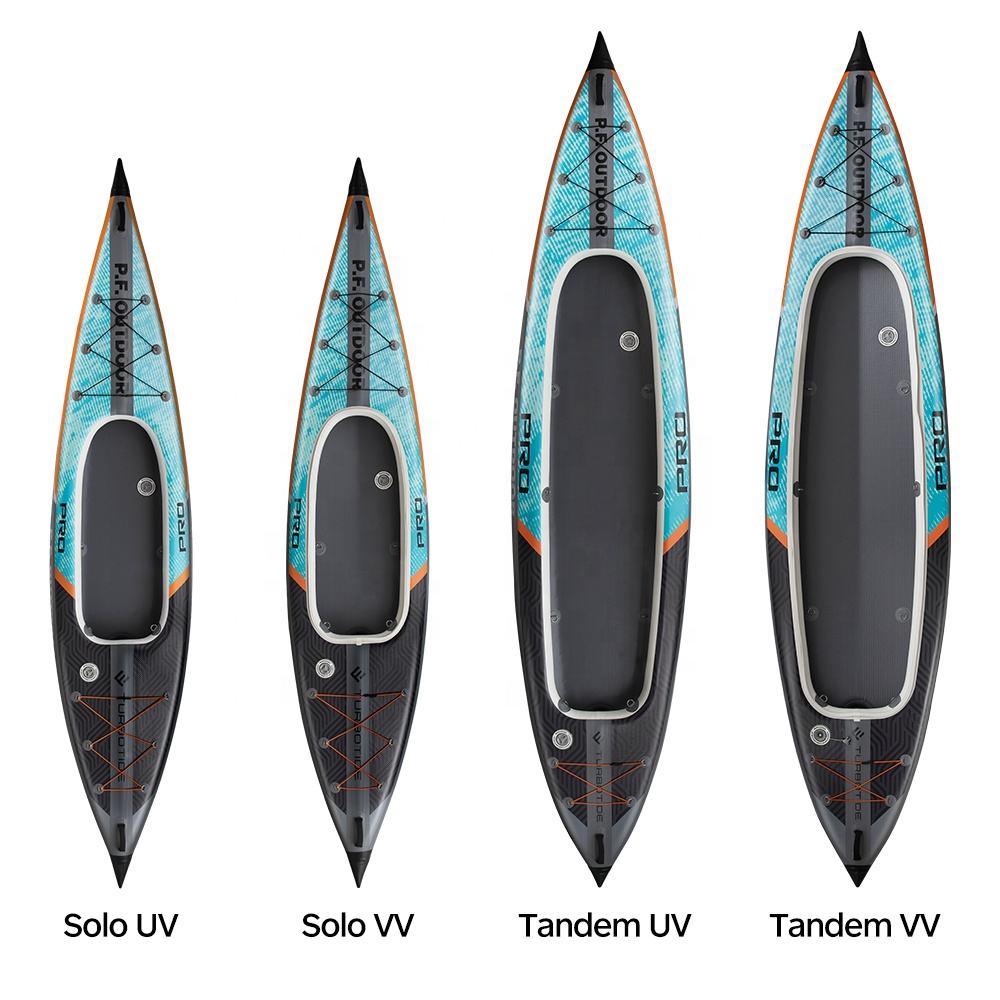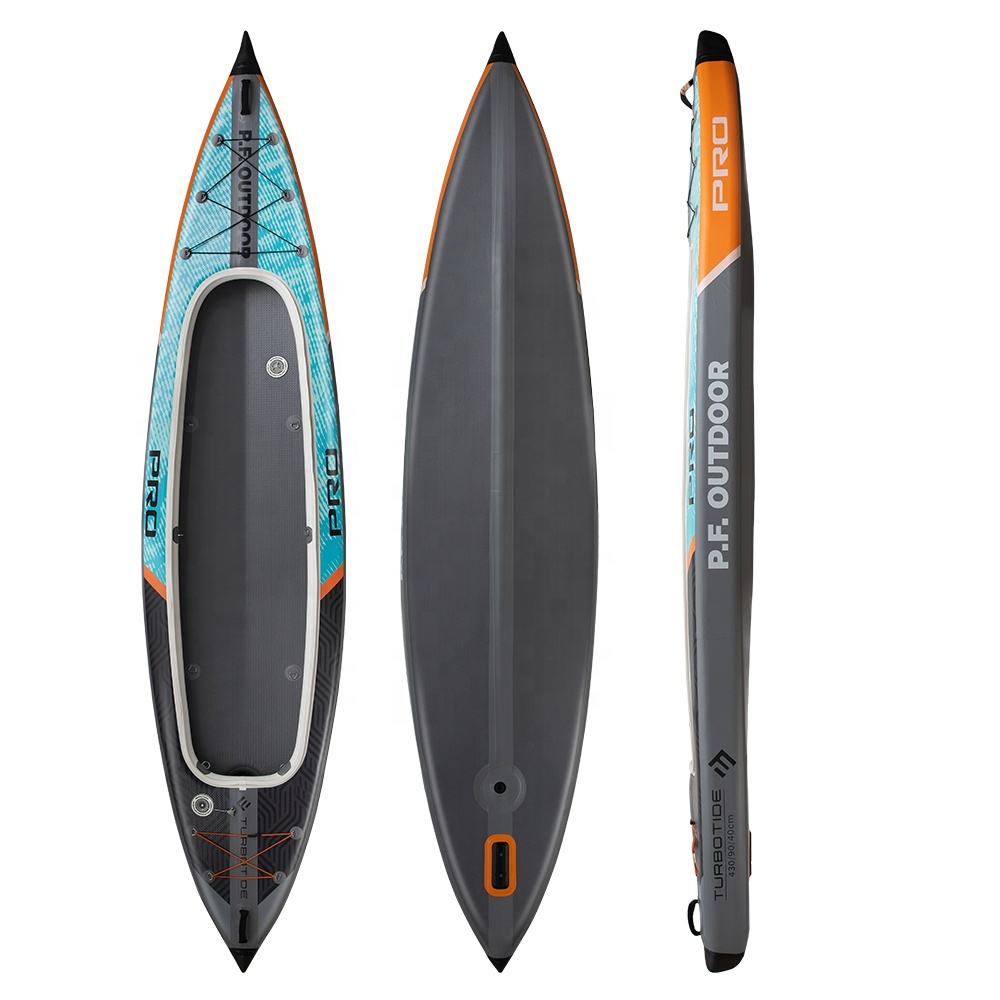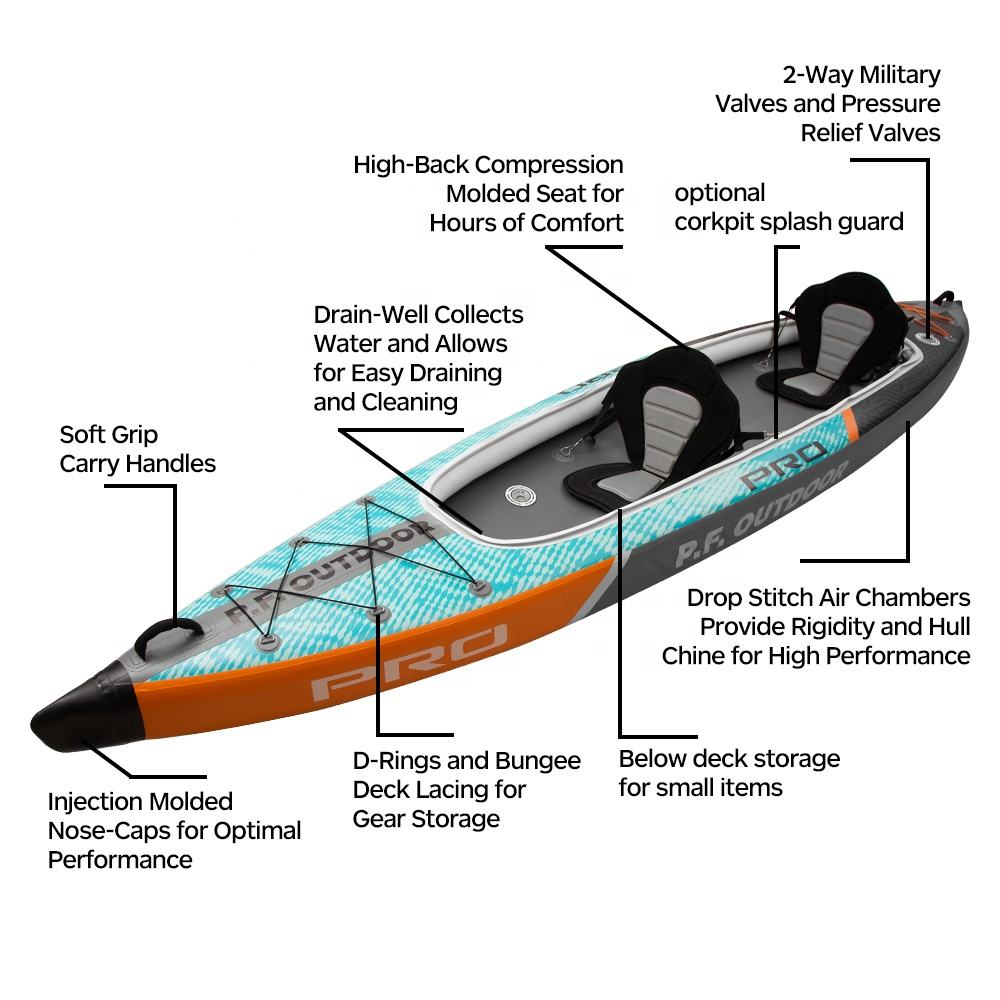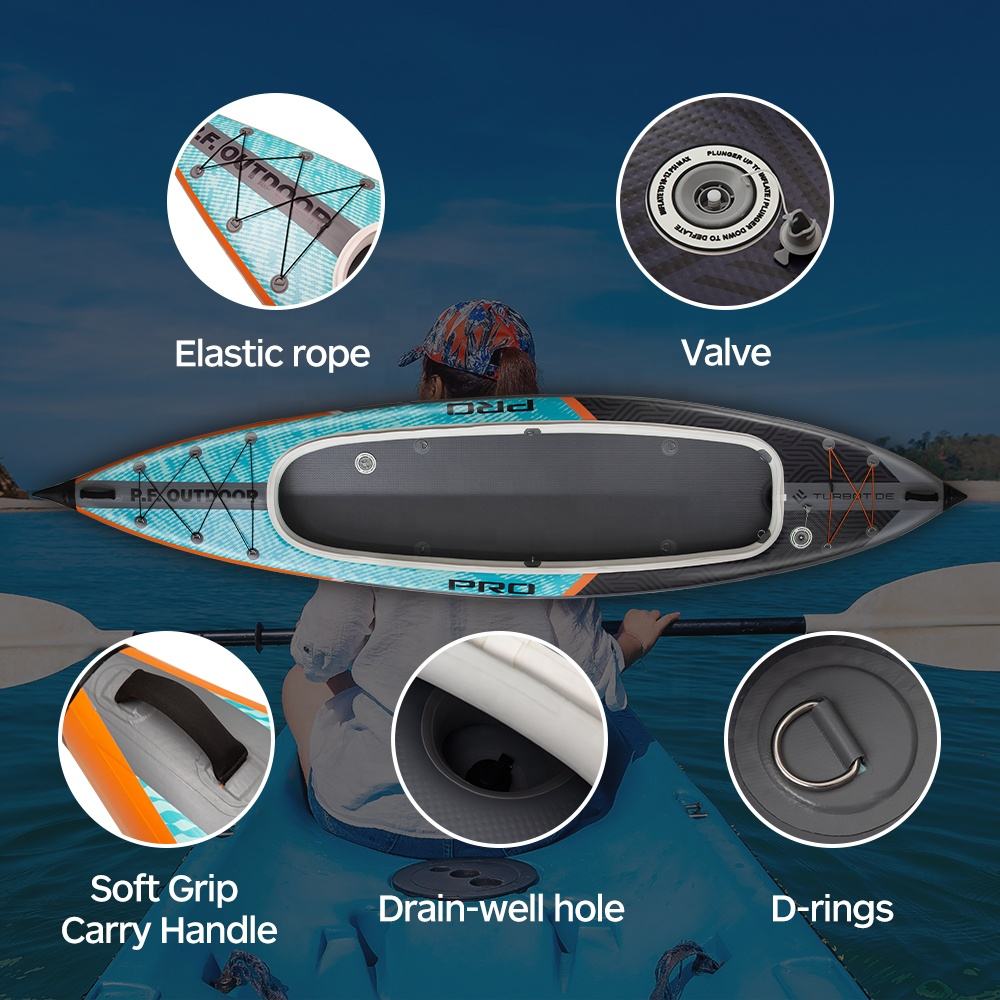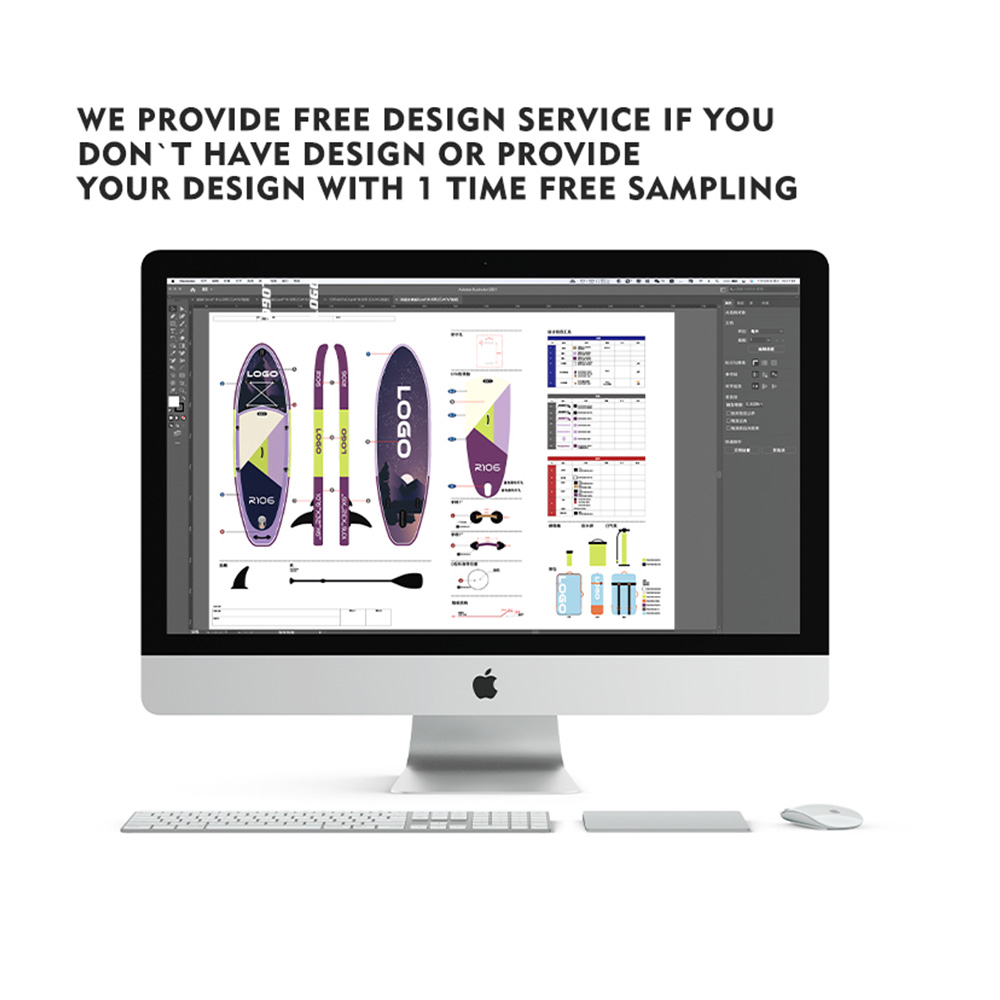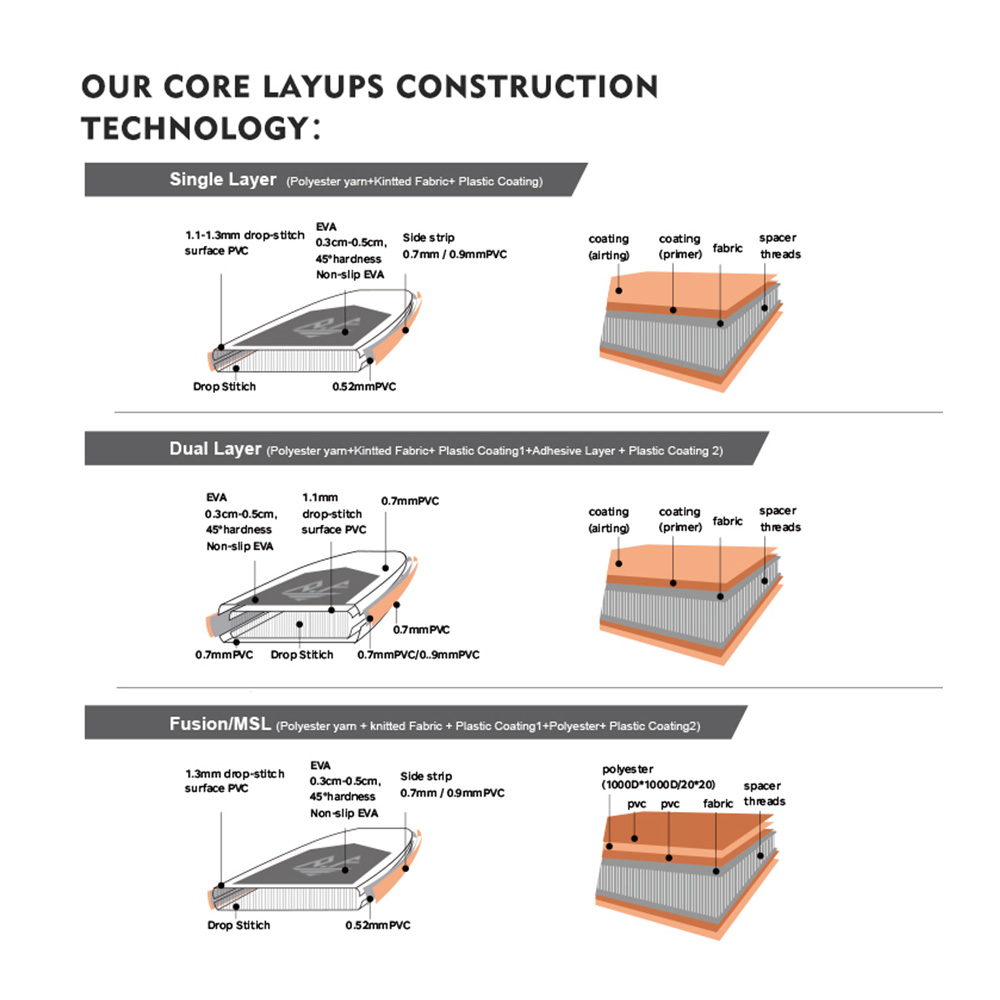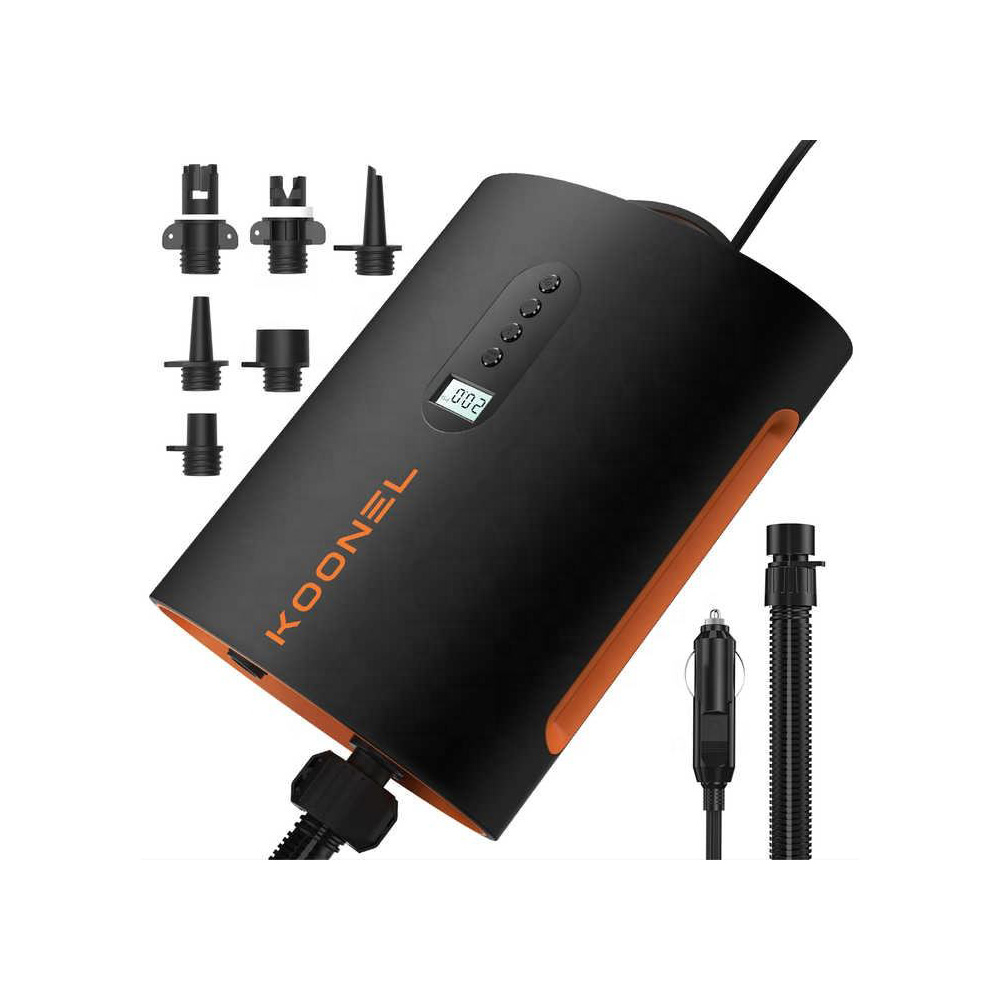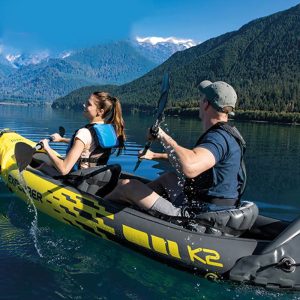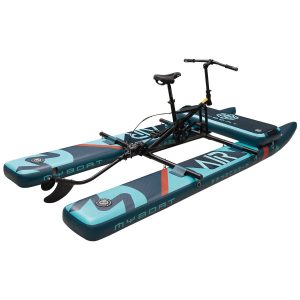Features of inflatable boat include:
- Portability: They are lightweight and can be deflated for easy transport and storage. This makes them convenient for people who don’t have a lot of space or need to travel with their boat.
- Durability: Most modern inflatable boats are made from tough, durable materials like PVC, Hypalon, or polyurethane, making them resistant to abrasions and punctures.
- Versatility: They come in various sizes and designs suitable for different purposes, from leisurely activities like fishing and recreational boating to more specialized uses like whitewater rafting, yacht tenders, or even military and rescue operations.
- Stability: Inflatable boats typically have multiple air chambers, providing added stability and safety. Even if one chamber is punctured, the others can keep the boat afloat.
Remember, the specific features and benefits can vary depending on the brand, model, and purpose of the inflatable boat.
Inflatable boat offer several advantages, including:
- Safety: Many inflatable boats have multiple air chambers, ensuring that if one chamber is punctured, the others maintain buoyancy and keep the boat afloat. Additionally, their stability and buoyancy make them safer for various water activities.
- Affordability: Inflatables tend to be more budget-friendly compared to traditional hard-hull boats. This cost-effectiveness makes them accessible to a wider range of people interested in boating.
- Easy Assembly: They can be quickly inflated and assembled, allowing for more time on the water rather than spending excessive time on setup.
- Buoyancy: The buoyant nature of inflatable boats allows them to carry heavy loads while remaining afloat and stable.
These advantages make inflatable boats a popular choice for various recreational, professional, and practical water activities across different environments.
Customizable aspects of inflatable boat include:
- Flooring: Some inflatable boats offer various floor options, such as inflatable floors, high-pressure air floors, or rigid floorboards. These can be chosen based on the desired level of stability, rigidity, and convenience.
- Seating Arrangements: Depending on the model, inflatable boats may allow customization of seating layouts. This flexibility can accommodate different numbers of passengers or specific preferences for seating arrangements.
- Accessories: Manufacturers often provide options for adding accessories like rod holders, extra storage compartments, mounting points for additional equipment, or sunshades to enhance the functionality and comfort of the boat.
- Colors and Designs: Some inflatable boats offer a choice of colors or designs, allowing buyers to personalize the appearance of their boat.
- Material Upgrades: Depending on the intended use and budget, users might have the option to upgrade the materials used in the construction of the boat. Higher-end materials like Hypalon might be offered for increased durability and longevity.
- Size and Shape: While the basic design may be fixed, there might be variations in size or shape within a particular model range. Users may choose the size that best fits their needs, whether it’s for solo trips, family outings, or specific water activities.
These customizable aspects allow users to adapt their inflatable boats to suit their preferences, specific activities, and the conditions they’ll be using the boat in.
There are several packaging solutions available for inflatable boat including:
- Carry Bags: Most inflatable boats come with a carry bag specifically designed to fit the deflated boat. These bags often have handles or straps for easier transportation. They protect the boat during transport and provide a convenient storage solution when the boat is not in use.
- Cardboard Boxes: Some manufacturers ship their inflatable boats in cardboard boxes. These boxes are designed to securely hold the boat and its accessories during shipping. While not typically used for ongoing storage, they can offer adequate protection during transit.
- Palletization: For bulk shipping or larger boats, palletization might be employed. The deflated boats are packed and secured on pallets using straps or shrink wrap for stability during transport. This method is commonly used for shipping multiple boats together.
- Plastic Wrapping: Inflatable boats might also be wrapped in protective plastic or shrink wrap to shield them from dust, moisture, and potential damage during transportation or storage.
- Customized Containers: Some premium or specialized inflatable boats might come in custom-made containers. These containers are designed to perfectly fit the boat’s shape and provide maximum protection during transportation. They can be made from materials like hard plastic or reinforced cardboard.
- Foam Padding: In some cases, inflatable boats might be packaged with foam padding around sensitive areas (such as valves or fragile components) to ensure added protection during shipping.
Each packaging solution is tailored to ensure the safety and protection of the inflatable boat during transit while also providing convenience for the user when it comes to storage and handling.
